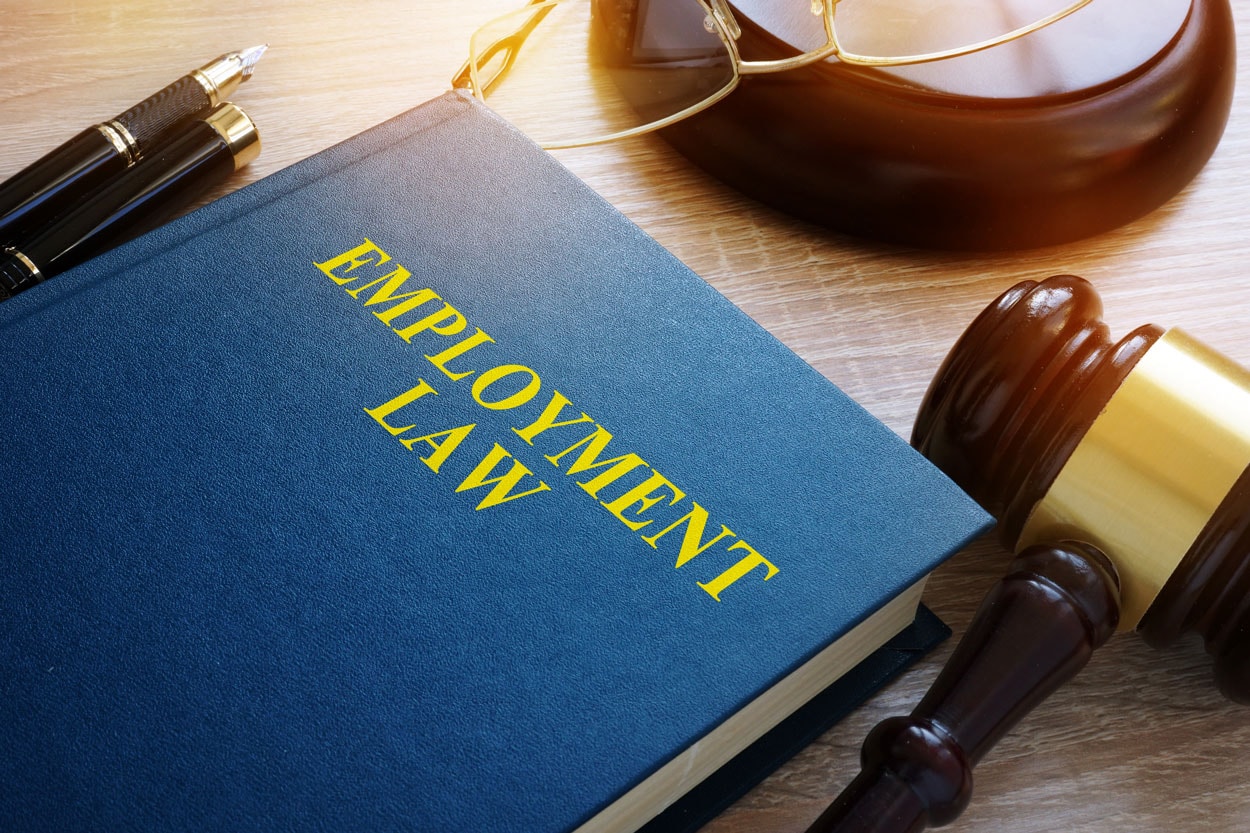Alberta’s First Application for Streamlined Trial Fails

Arsenault v Big Rock Brewery Limited Partnership, 2024 ABKB 387 (Armstrong) is an Alberta Court of King’s Bench decision where the Court found a matter unsuitable for streamlined trial.
This decision is important because it is the first reported decision in Alberta considering the new Streamlined Trial process.
Facts
The following were the facts summarized by the ABKB:
- Wayne Arsenault is a former employee of the employer Big Rock
- He held the position of president and CEO. His employment was terminated, purportedly for just cause
- He sued for wrongful dismissal, and brought an application to have the matter determined by way of the new streamlined trial process under the Alberta Rules of Court
- Big Rock’s position that it had just cause for termination of Mr. Arsenault’s employment included the following allegations:
- He disobeyed the board of directors
- He engaged in gross negligence or was incompetent
- He made misrepresentations about financial information
- He concealed information from the board of directors
- He was dishonest, insubordinate, neglectful, etc.
- Big Rock’s submissions in the application were that it would require a minimum of 5 witnesses to prove its allegation of just cause, and that there was a great deal of financial information that would be presented as evidence
Analysis / Conclusion
The Court noted that the party applying for streamlined trial has the onus to establish that the streamlined trial process is necessary and proportionate.
The Court noted that the test for streamlined trial is different than the test for summary trials was:
[19] The test for a streamlined trial differs from the test under the old summary trial rules. A summary trial could be granted where the court was satisfied that it could decide disputed questions of fact on affidavits or by other proceedings authorized by the rules for summary trial and where it would not be unjust to decide the issues by way of summary trial […]
[20] The test for a streamlined trial is no longer whether the matter can be decided using a streamlined process; it is whether it is necessary to use a streamlined process to have the matter fairly and justly resolved. The use of the word “necessary” in the new streamlined trial rule reinforces that the default process will be a regular trial unless the party moving for a streamlined trial is able to establish that the streamlined process is required or essential for the action to be fairly and justly resolved. [underlined added]
The Court went on to provide some guidance on when a streamlined trial might pass the “necessary” threshold:
[22] Some of the circumstances in which a streamlined trial may be found necessary include:
-
Where the streamlined trial will create a more efficient process by eliminating unnecessary steps and reducing overall delay in the resolution of the dispute.
-
Where the streamlined trial will result in a more cost-effective process for the parties.
-
Where the streamlined trial will enhance the administration of justice by making more efficient use of court resources and provide litigants with a more accessible and timely dispute resolution process.
-
Where the streamlined trial will result in a more sharply focussed process and the elimination of complexities in the form of interim applications that do not bear on the ultimate resolution of the real issues in dispute.
-
Where it would be unjust to require the parties to proceed to a full trial, considering the value and complexity of the dispute.
-
Where the streamlined trial process will simplify the proceeding to make it easier for the parties to assess the strengths and weaknesses of their positions and thereby potentially reach a resolution without the need for a trial.
[…]
[33] If it is not readily apparent to the judge hearing an application for a streamlined trial that the streamlined trial is necessary to achieve a fair and just result through a more efficient or cost-effective process for the parties or a more efficient use of judicial resources, it should not typically be allowed. A cursory assessment of the number of trial days that may be required for a standard trial versus a streamlined trial is not a sufficient analysis. The overall fairness, efficiency, cost-effectiveness, and impact on the allocation of court resources ought to be considered. If a streamlined trial will serve to achieve any, some or all these objectives, or if it would be unjust to require the parties to undertake a standard trial, then a streamlined trial should be allowed. In the absence of any such benefits, a streamlined trial will not generally be necessary, and the parties should be directed to a standard trial, perhaps with the benefit of a procedural order.
[34] It is implicit in the test for a streamlined trial that if invoking that process would be less efficient and more costly than a regular trial, it is not necessary for the action to be fairly and justly resolved. […]
The Court found that in this particular case, the applicant had not established that the streamlined trial was necessary for several reason, including:
- There may be a few days’ of saved trial time, but that was more than offset by how much preparation time it would take the trial judge to review so many affidavits and hear some oral evidence on top of that
- The parties would have to spent considerable time preparing affidavits and questioning on those affidavits
The Court went on to note that even if the case had been considered necessary, it would not have been considered proportionate to the complexity and the issues. The following was the Court’s guidance on the applicable test and consideration of that test in this case:
[39] At this stage of the analysis, some of the jurisprudence relating to summary trials can be instructive. When considering whether a streamlined trial is a proportionate process, many of the factors that were considered in relation to the suitability of a summary trial are applicable. These factors include the amount involved, the complexity of the matter, the urgency, any prejudice likely to arise by reason of delay, the cost of a trial, the course of the proceedings, the need to cross examine witnesses in court, the necessity of questioning for discovery and whether resolution of the matter will depend on findings of credibility […]
[…]
[49] Considering all the relevant factors, I find it is more likely than not that a streamlined trial will result in a lengthier pre-trial process, a duplication of efforts to adduce evidence by way of affidavit and then again at a streamlined trial and it will result in a less efficient use of judicial resources. In this case, the proportionate process is a standard trial. That is the process that is most likely to facilitate the quickest means of resolving the case at the least expense and make the most efficient use of publicly funded Court resources.
My Take
Every case is decided on its facts. The fact that this complex matter was not considered suitable for streamlined trial is not overly surprising to me. However, the reasoning in the case does surprise me.
The reasoning in this case suggests to me that the bar for when a matter is appropriate for streamlined trial will be much harder for an applicant to reach than it was under the test for summary trial. I will admit to not entirely expecting this outcome, and I think the reasoning does harken somewhat back to the cases pre-Hryniuk, and there may be further developments in the caselaw yet.
To illustrate why I am a bit surprised by the reasoning in this case, consider the following:
- Streamlined Trials were created to replace summary trials. One of the main reasons streamlined trials were developed was because litigants were not using summary trials very much, and thus the aims of Hryniuk were not being realized in Alberta. This problem was noted by many commentators and even some decisions. In other words, part of the purpose of creating streamlined trials was to encourage litigants to steer away from standard trials and towards trials that relied in part on affidavit evidence
- Its true that the Rules related to Streamlined Trials incorporate the term “necessary” as the test for whether a matter is to be decided by streamlined trial, but the context of the development of the streamlined trial itself suggests to me that a high percentage of matters should be considered “necessary” to be decided that way where an application is made. This point is reinforced by the fact that Rule 27(2) actually allows a special costs penalty to be levied against a party for making an “unjustified” objection to a matter proceeding by streamlined trial
- A leading case in Alberta on alternative processes for adjudication is Weir-Jones Technical Services Incorporated v Purolator Courier Ltd., 2019 ABCA 49. Contrast paragraph 20 of the Arsenault decision summarized herein with this paragraph from Weir-Jones: “[conventional] trial as the default procedure is … not realistic; the expense of trial may cause some plaintiffs to “simply give up on justice”…We have to strive for a “fair and just process” recognizing that “alternative models of adjudication are no less legitimate than the conventional trial”.
I would suggest that the 2-step test for whether something is suitable for streamlined trial looks a lot more like 1 step to me – it appears to me on the basis of this case that if something satisfies the “necessary” element, it will satisfy proportionality, and if it does not satisfy “necessary” then it will not satisfy proportionality.
Regardless of my commentary, it is exciting to finally see a case on streamlined trials, and I am interested to see whether it is appealed and what cases might follow it.
Bow River Law provides these regular legal blog articles for the purposes of legal news, education and research for the public and the legal profession. These articles should be considered general information and not legal advice. If you have a legal problem, you should speak to a lawyer directly.
Bow River Law is a team of knowledgeable, skilled and experienced employment lawyers handling employment law, human rights (discrimination) and labour law matters. Bow River Law is based in Calgary but we are Alberta’s Workforce Lawyers.


